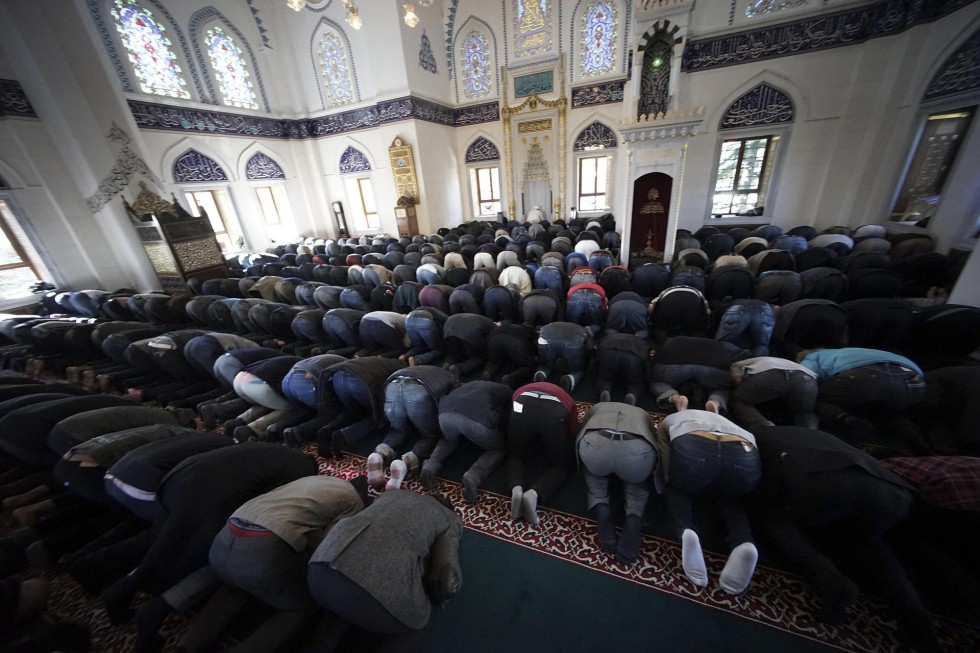- Joined
- Nov 27, 2012
- Messages
- 400
- Points
- 0
Japanese Muslims call Islamic State hostage takers 'an embarrassment'
PUBLISHED : Friday, 30 January, 2015, 3:19am
UPDATED : Friday, 30 January, 2015, 3:19am
Julian Ryall in Tokyo

Japanese Muslims pray at the Tokyo Mosque. Photo: AP
The call to prayer from the Tokyo Mosque goes largely unremarked in the leafy Oyama-cho district of west Tokyo, where a house of worship for the city's Muslim population has stood since 1938.
Even today, when a Japanese hostage has already been executed in the name of Islam and another, Kenji Goto, is facing an uncertain fate at the hands of Islamic State (IS) extremists, Muslim residents of Japan insist that they are still welcomed by local communities.
"I've been in Japan for 41 years now and I've never had a problem in all that time," said Mohammed Hanif, who hails originally from Pakistan-administered Kashmir.
"Japanese people have always treated me very well; I've never experienced discrimination and never had any problems because of who I am," said 63-year-old Hanif, who works in a restaurant.
The Japanese police did tend to stop and question more people who appeared to be from the Middle East in the immediate aftermath of the attacks on the World Trade Centre in New York and the Pentagon in September 2001, but they never quizzed him and the attention soon faded, Hanif added.
And he said the Muslim community in Japan had no time for the extremists who were damaging the name of their religion.
"These people are not religious; they are an embarrassment to true Muslims around the world," he said.
"But even though this situation now involves Japan, I can honestly say that I see no changes in the way that Japanese people treat me."
Abdullah Sit, a spokesman for the Tokyo Mosque and Turkish Culture Centre, agreed that the situation in the Middle East was "very difficult", adding that Japan's Muslim population was praying for the early release of all hostages held by Islamic State.
Muslim residents of Japan were among the first to denounce the militant group that executed Haruna Yukawa and has since threatened to kill Goto.
"Islam does not condone persecution or violence," Muhammed Rasit Alas, an imam at the Tokyo Mosque, told Muslims who came to last Friday's prayers.
In a statement posted on its website, the mosque said violent acts "have a serious impact on Muslim communities all over the world and put Muslims in a precarious position".
According to Sit, there are about 100,000 Muslims in Japan, including some 10,000 Japanese converts to the faith. The majority are women who have converted to Islam to marry their foreign partners.
"Many Japanese travel abroad now and some visit Muslim countries, where they find themselves attracted to our religion," said Sit, who was originally from Turkey but who has lived in Japan for 20 years.
Apart from mosques in Tokyo, Kobe and Nagoya, there were about 90 smaller prayer halls for Muslims dotted across Japan, he added.
Analysts said there had been no reports of retaliatory attacks against Muslims, mosques or Muslim-operated businesses in Japan since Goto and Yukawa were first shown in a video and the hostage-takers demanded a US$200 million ransom.
"I would say that there are no bad feelings among Japanese people towards Muslims living here because I believe they realise that many have run away from their homelands to be safe," said Yoichi Shimada, a professor of international relations at Fukui Prefectural University.
"The people who live and work here are very different from the fanatics of Isil [Islamic State) and that sort of criminal element of the Muslim world," he said. "We know that Isil kills Muslims as well as Japanese, so we see these people as fellow victims."
